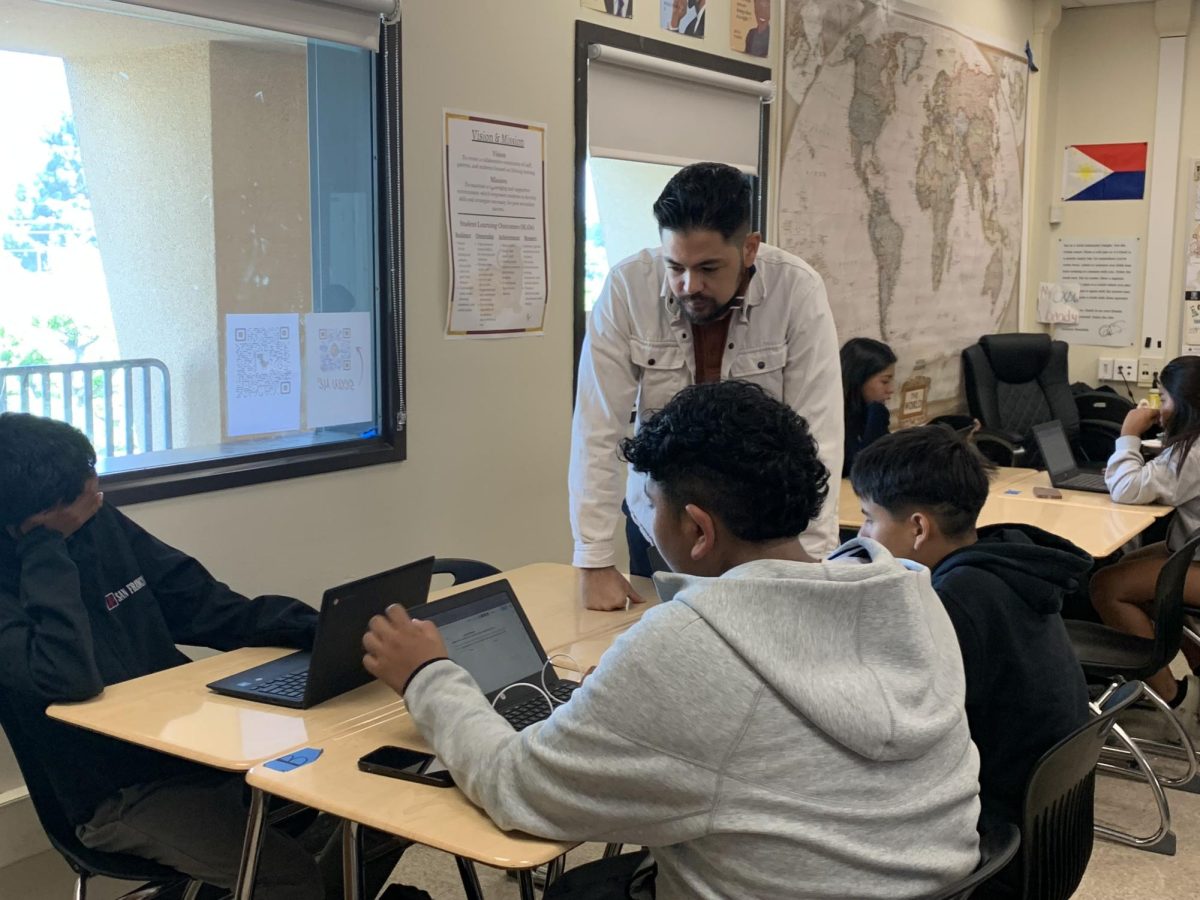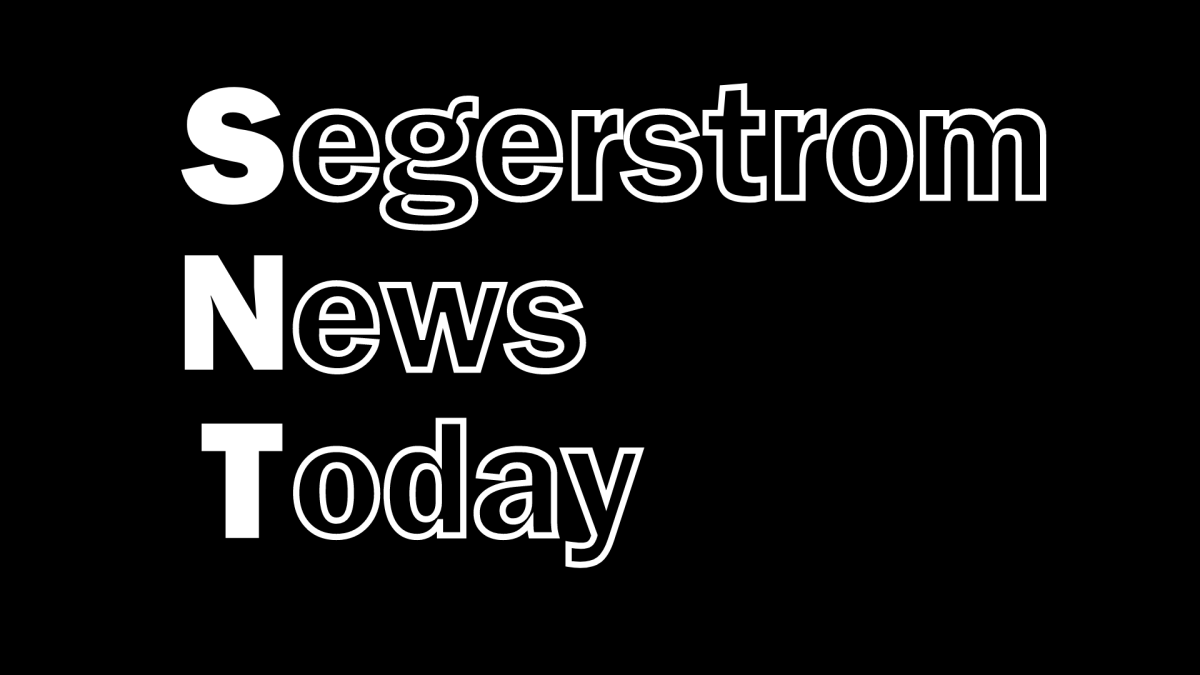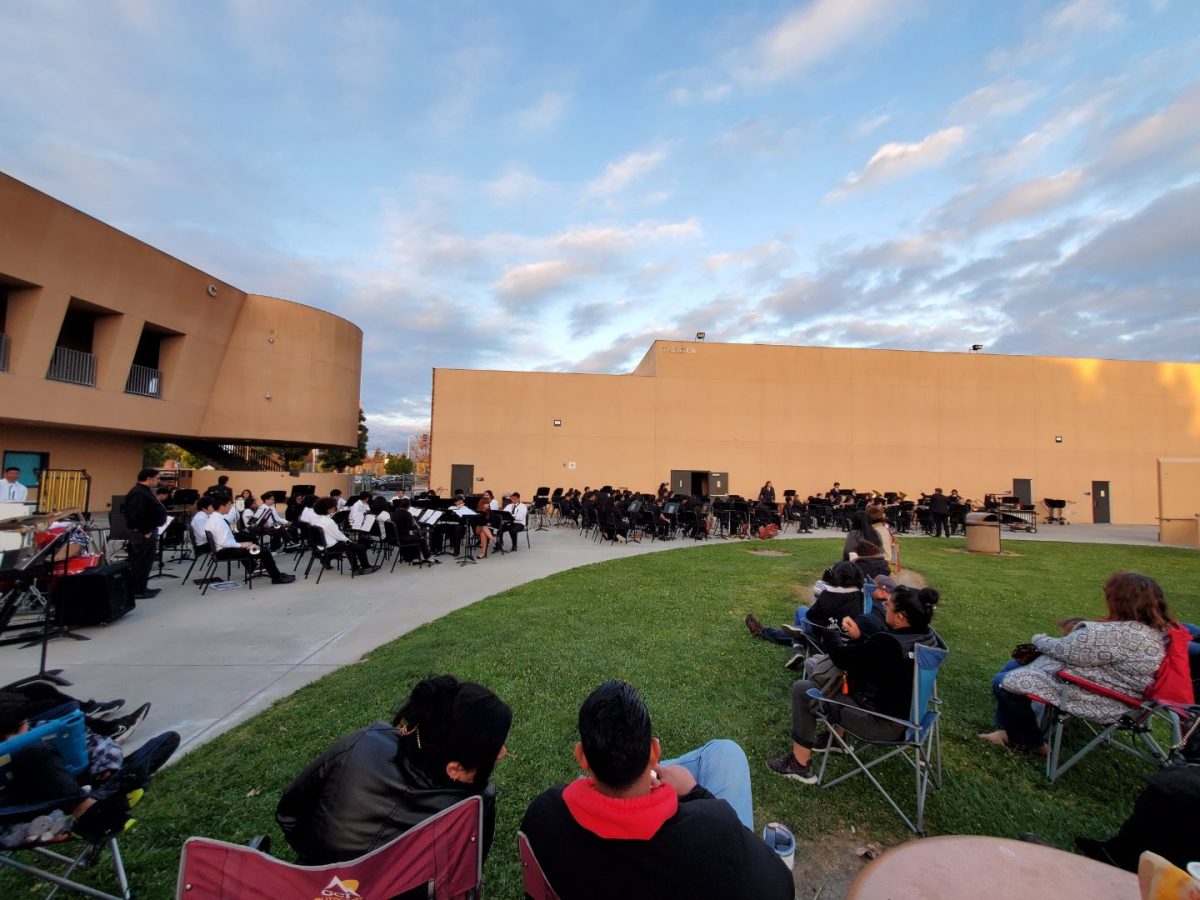The new Ethnic Studies class has been claimed as an educated front against racism. In 2020, SAUSD passed resolution 19/20-3353, to solve stereotypes and make it mandatory to take the course. As a response, Segerstrom replaced all English 9 classes with “English: Ethnic Studies.” This year, it became a mandatory graduation requirement.
But the history of ethnic studies at Segerstrom may go further back than a few months. “World Geography and Culture” was a class taught here over seventeen years ago. It has been considered a mixture of AP Human Geography and AP World History and covered international geography and cultures. Around 2010, SAUSD decided to remove the class requirement for no particular reason. Fortunately, we have a former World Geography and Culture teacher here today.
“I think [World] Geography was an important class that freshmen were required to take at one time. And I think it’s unfortunate that the school board, many years ago, decided to change the graduation requirements. I wish it would come back as a graduation requirement,” responded AP Government & AP Economics teacher, Sean Decker. “I am also an advocate for Ethnic Studies, I think they work well together. I think students taking ethnic studies would make it better for political culture and our political systems and functions.”
Mr. Decker does shine a light on a forgotten aspect of our school. Along with drawing a parallel between both classes. With the freshmen requirement and its supporting role in democracy. As a political scientist, Mr. Decker views ethnic studies with high optimism. It is warranted because we have a similar class in the form of an elective and a social studies class, “Ethnic Studies: World Geography.” Rather than being an English-based teaching, it reflects more of the social studies aspect. Excitement and cheerfulness resonate throughout the class.
“I think it’s a great way for students to [not] engage in just regular content but also to learn about themselves, their communities, their backgrounds, their identity, and I have seen a lot of good results from the one class last year,” Ethnic Studies World Geography teacher Mr. Bandy responded. “I saw a lot of improvement and great results from [the] students who took the class. I saw a lot of students learn to be empathetic towards other people. I saw a lot of students care about their community and the people they live around, which is great to see.”
When describing the effects of Ethnic Studies, Mr. Bandy shows the importance of the class as it promotes self-advocacy and furthers personal growth. The course goes over their role in society and how our government functions. And even if the 2020 resolution doesn’t apply to current juniors or seniors, they are still offered the elective. Students in these classes often enjoy the content within.
“I took Ethnic Studies [World Geography] because I wanted to learn it,” Andy Molina (12) commented. “It is like AP Human Geography and AP World History. I think it is important for people to know some of their history.”
Molina is optimistic about the elective and states it will further his political literacy. And Molina believes Ethnic Studies will contribute to a healthier democracy.
Through Segerstrom’s second year of Ethnic Studies, there have been results in both political and academic literacy. The overall change in our English Department has mixed opinions. On the one hand, colleges frequently reference specific books as well as the symbolism and writing styles they envelop. To Kill a Mockingbird, Of Mice of Men, The Odyssey, and Romeo & Juliet, were all books previously read in ninth-grade English class. If a student is interested, these books are provided in the library. However, most teachers embrace the change. they see it as a method of engaging students in their past through literature.
“I immediately thought that this would be great, I already try and bring texts from other cultures and ethnic groups. A lot of the stories that we read in class don’t reflect our students’ experiences,” English Ethnic Studies teacher, Andrea Guerra said. “I think it’s a great opportunity for students to learn English skills, through a different lens. Once they get on board, they are excited. And it shows because we have had many students sign up for tenth grade even though they don’t have to, they choose to. I have talked to parents as well who are super enthused and excited about it.”
Although Ms. Guerra does support the concept of optional Ethnic Studies, the empathy learned over time is valuable. Ms. Guerra enjoys being able to benefit students in various ways, not just in literary skills but also being able to grow as people. It’s not just teachers who cherish the class. Even the majority of those enrolled view the class with positivity. As an introductory class to Freshmen, many of them have found benefits from Ethnic Studies.
“I like ethnic studies because we can learn about different races and different cultures. It’s you learning about different cultures that are not your own or could be your own,” said Jayleen Alvarez (9). “I like it as a required class because I think a lot of people should learn about different cultures and races.”
From its beginnings in World Geography and Culture to today, Ethnic Studies became appreciated for its modern approach. The introduction of cultures has led to resonation for the class. The only issue was the possibility of expanding the previous curriculum to accommodate Ethnic Studies. But as it has been two years, most of the issues are being resolved in due time. With support from both students and teachers, it’s concluded that the course is an overall success and that Segerstrom hopes to keep Ethnic Studies for years to come.







Bushra Syed • Dec 20, 2023 at 12:47 pm
I think this was a great subject for a story, Joshua. I think a lot of students and teachers will miss the old English 9 class, mainly for exposing students to some of the most classic books in literature they otherwise wouldn’t have read. Despite that, I’m excited to see what this new curriculum has to offer. It’s a different type of class that will teach students about different cultures and backgrounds, which I think our school needs.
nataly macuil • Dec 20, 2023 at 11:35 am
This is so exciting! I really love that our school is being able to learn about new cultures!